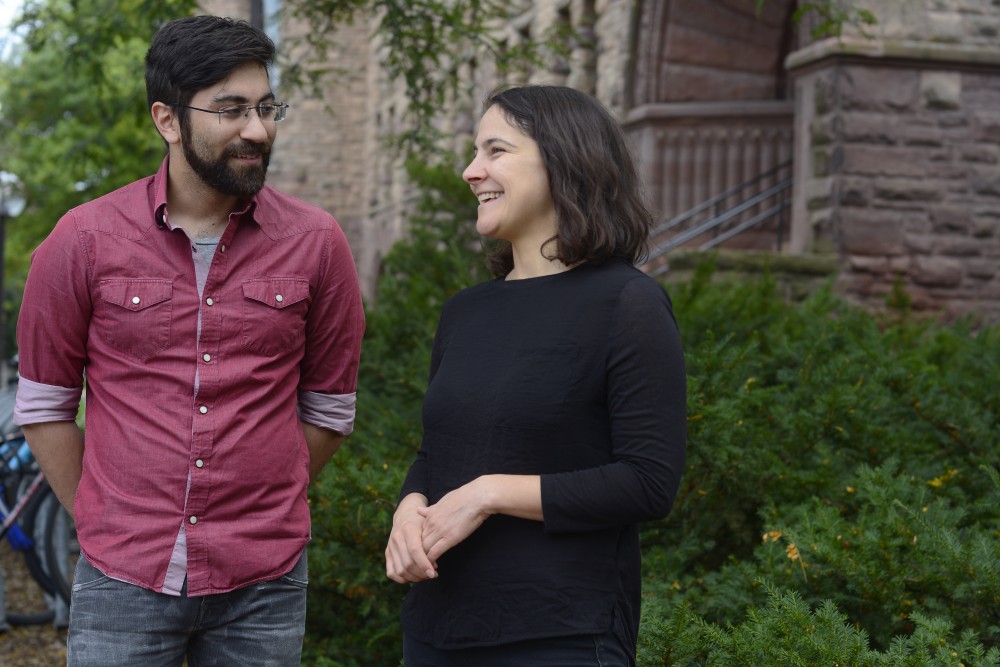Hosted by Mizna, a local arts organization, the Twin Cities Arab Film Festival invites viewers to share in the iterations of contemporary Arab lives, but above all, to enjoy some incredible cinema.
Festival director Michelle Baroody, a PhD student at the University of Minnesota in Comparative Studies in Discourse and Society, and program coordinator Jordan Lee Thompson provided some insights into the roles that the festival plays in Minneapolis. This is a rare event — there are only five Arab film festivals in the U.S.
“I think because of Mizna [being based here], right after 9/11, we decided that we needed to have one,” Baroody said.
“We’re interested in not sticking to the stereotype of ‘bombers, belly-dancers and billionaires,’” Thompson said.
Dissolving these stereotypes, however, takes time.
“We can’t just ignore the political — when people think about an Arab film festival, there’s no way that it’s not going to be politicized,” Thompson said. “We have to think about representation. What types are we promoting? What are we countering? We look for filmmakers who understand that visual media is this thing we see over and over again — we see the same kinds of images of Arabs, and [those] images can be challenged.”
That said, for the organizers of the festival, it’s not all about politics.
“A lot of it’s just moving the needle in terms of humanizing Arab-Americans and Arabs,” Thompson said. “Especially right now, maybe more now than ever before in my lifetime, being Arab in America is inherently — our existence is inherently political.”
Amid political ballyhoo, people sometimes forget the most important part of the Arab Film Festival: artistry.
“Something that maybe gets lost in the political rhetoric is that there’s some really amazing cinema that comes out of the Middle East and out of North Africa,” said Baroody. “We don’t think about this as a cinema-producing place, and it has a history of filmmaking that gets sidelined by Hollywood and Europe. A lot of them have nothing to do with what we’d consider ‘Arab’ iconography.”
Thompson mentions Mizna’s program director Moheb Soliman, a nature poet who’s also Arab-American.
“Maybe it’s just as political for Moheb to be making nature poems,” said Thompson. “That juxtaposition can be hard for people of color. We’re asked to represent our people, or whatever, through our work, right? Because of that expectation, there’s work that’s dealing with political issues, and then there’s work that’s meant to be apolitical. Which is inherently political somehow, in the context of Minneapolis.”
Baroody also told us what to look forward to at the festival.
“We’ve got one North American premiere this year — a film called “Withered Green” — this Egyptian film that’s pretty amazing,” Baroody said. “It has this really strong female lead, also, and it’s dealing with issues of gender in Egypt.”
“Withered Green” plays on Sept. 28, at St. Anthony Main, at 5:20 p.m.
Free for students are the opening night concert at the Walker Art Center with Hello Psychaleppo (Sept. 27, at 9 p.m.) and the screening of Gaza Surf Club (Sept. 28, at 1:20 p.m.) at St. Anthony Main. Other screenings: $10 with student ID.








